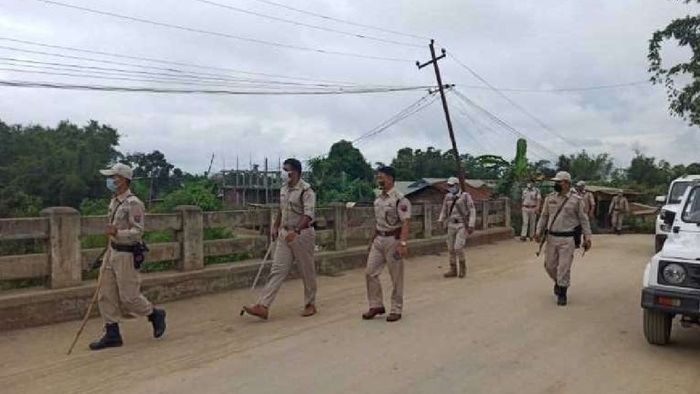Naga Women's Union demands immediate removal of unauthorized checkpoints in Manipur to restore public order
The Naga Women’s Union has urged the Ministry of Home Affairs, Central Military Institutions, and the State’s Home Department to take immediate action in dismantling unauthorized checkpoints and gates that have emerged across various districts of Manipur since the outbreak of conflict between the Meitei and Kuki communities on May 3, 2023.

- Sep 28, 2024,
- Updated Sep 28, 2024, 10:43 AM IST
The Naga Women’s Union has urged the Ministry of Home Affairs, Central Military Institutions, and the State’s Home Department to take immediate action in dismantling unauthorized checkpoints and gates that have emerged across various districts of Manipur since the outbreak of conflict between the Meitei and Kuki communities on May 3, 2023.
According to the Union, the presence of bunkers, barricades, and makeshift obstacles such as mud-filled sacks and drums not only disrupts public travel but also violates the fundamental rights of citizens to navigate public highways freely. The Union emphasized the severe hardships faced by the local population, including harassment, extortion, and intimidation by armed groups occupying these checkpoints.
A primary concern raised by the organization is the invasive and arbitrary demands made by those manning these checkpoints. The Union condemned the frequent verbal and ethnic abuse encountered by the public, citing it as detrimental to the mental well-being of those subjected to such behavior.
Also read: Red alert issued for Sikkim, heavy rainfall and snowfall expected, public urged to avoid travel
Another issue highlighted is the prolonged delays at checkpoints, particularly along national highways, which often result in school vans being delayed, thus affecting children's education. The Union stated that this constant disruption is damaging to the learners' mental state and urged authorities to recognize the long-term impact such an environment can have on students.
The Union further argued that these continued disruptions over the past year and five months are in direct violation of civil rights under the National Highway Act, 2002. The illegal occupation and obstruction of highways should be seen as a punishable offense under the law. They reiterated that the rights of the non-warring population should not be compromised for such an extended period.
Moreover, the Union expressed concern over the unprofessional behavior observed between central military forces, state security personnel, and armed groups, all of whom operate in close proximity to one another. They called on the nation's military and state security forces to adhere to professionalism and act impartially, as prescribed by their duties, while armed groups should refrain from occupying public spaces, stating that "the culture of guns and ammunition has no place in a civilized society."